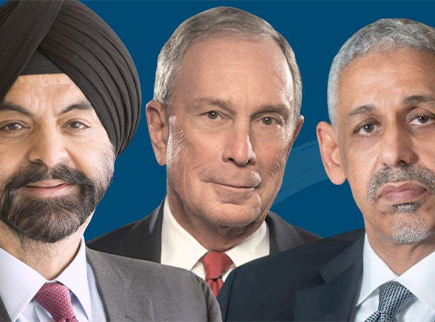Ghana and 16 other African counties have affirmed their commitment to expand access to electricity to citizens as part of the Mission 300 programme of the World Bank, aimed at connecting 300 million Africans to electricity by 2030.
The 17 countries made the commitment at the Bloomberg Philanthropies Global Forum on Wednesday, September 24, endorsing National Energy Compacts to guide public spending, trigger reforms, and attract private capital.
The other 16 countries are Benin, Botswana, Burundi, Cameroon, Comoros, the Republic of Congo, Ethiopia, Gambia, Guinea, Kenya, Lesotho, Mozambique, Namibia, São Tomé and Principe, Sierra Leone, and Togo.
Since Mission 300 launch in April 2024, some 30 million people have been connected to electricity across Africa, with more than 100 million in the pipeline.
However, only 58 per cent of African’s have access to electricity, although in Ghana, the Statistical Service has indicated that as of the end of 2024, national electricity access stood at 89.4 per cent.
“Ghana believes universal energy access is key to empowering businesses, reducing poverty, and creating equal opportunities,” said, President John Dramani Mahama in making commitment to achieving Mission 300.
“This goal can only be achieved through strong government–private sector partnerships, supported by an enabling environment for sustainable investment,” President Mahama stated.
Mr Ajay Banga, World Bank Group President, noted that electricity was the bedrock of jobs, opportunity, and economic growth.
“Mission 300 is more than a target—it is forging enduring reforms that slash costs, strengthen utilities, and draw in private investment,” Mr Banga said.
“Reliable, affordable power is the fastest multiplier for small and medium enterprises, agro-processing, digital work, and industrial value-addition. Give a young entrepreneur power, and you’ve given them a paycheck,” said, Dr. Sidi Ould Tah African Development Bank Group President.
Mission 300 programme is a partnership by the African Development Bank Group, with support from groups such as the Rockefeller Foundation, Global Energy Alliance for People and Planet (GEAPP), Sustainable Energy for All (SEforALL), and the World Bank’s Energy Sector Management Assistance Programme (ESMAP).
It involves African governments, private members and other partners implementing the Energy Compacts to achieve national energy targets and to boost economic transformation. It seeks to promote the use of renewable energy, create jobs and improve lives.


https://shorturl.fm/6YdRr